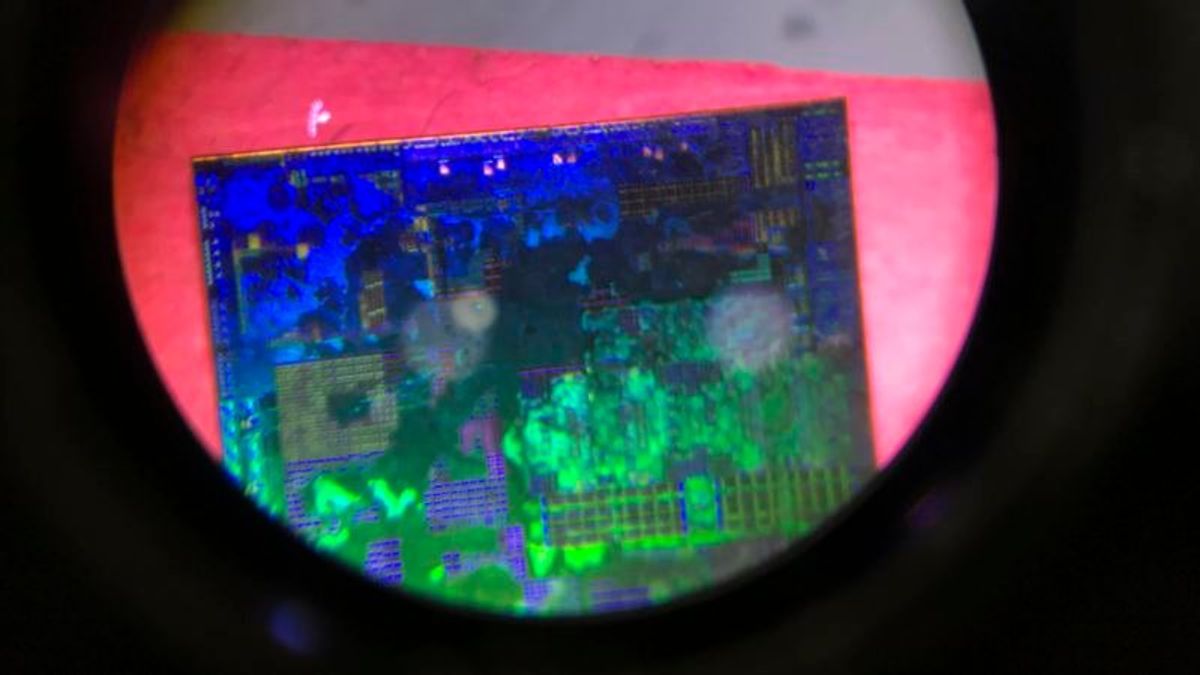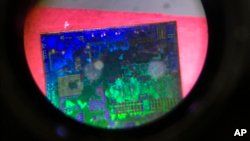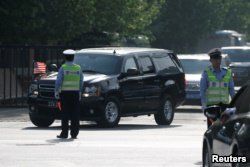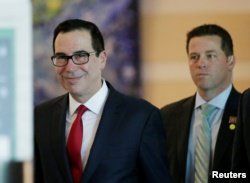
Trump to Impose Tariffs on $50B of China’s Tech Goods
Trump to Impose Tariffs on $50B of China's Tech Goods

WHITE HOUSE —
The White House says it plans to impose 25 percent tariffs on $50 billion of Chinese goods that contain "industrially-significant technology" as trade talks between United States and China continue.
The White House said Tuesday the proposed tariffs are in response to China's practices with respect to technology transfer, intellectual property, and innovation. It will announce the final list of covered imports by June 15, 2018, and the tariffs will be imposed shortly thereafter.
The Trump administration made the announcement in a statement called "Steps to Protect Domestic Technology and Intellectual Property from China's Discriminatory and Burdensome Trade Practices."
Other punitive steps include implementing stronger investment restrictions and enhanced export controls for Chinese citizens and companies related to the acquisition of industrially significant technology to protect national security.
The proposed investment restrictions and export controls will be announced by June 30, 2018 and adopted shortly thereafter, according to the White House.
Trade barriers

In addition, the Trump administration said trade talks with China will continue and it will request China remove all of its many trade barriers, including non-monetary trade barriers, and that tariffs and taxes between the two countries be "reciprocal in nature and value."
In response to the latest threat of tariffs from the White House, the Chinese Ministry of Commerce said in a short statement it is "surprised" by the announcement but added it "also expects it."
The Chinese ministry's statement claimed the White House move "was apparently contrary to the consensus both sides reached recently."
"China has the confidence, ability, and experience to safeguard its core interests, China urged the United Sates to act in accordance to the spirit of their recent joint statement," it said.
In April, Trump announced he planned to impose tariffs on $150 billion worth of Chinese goods, and Beijing responded by declaring it will retaliate by imposing similar amount of tariffs of imported American goods.
China in violation
The Trump administration's decision to take action is a result of an investigation conducted by the U.S. Trade Representative under Section 301 of the Trade Act of 1974 to determine whether Beijing's trade practices may be "unreasonable or discriminatory" and may be "harming American intellectual property rights, innovation or technology development."
After a seven-month investigation, the USTR found the policies were in violation.
The United States and China subsequently conducted two rounds of trade talks aimed at avoiding a full-blown trade war. The last round of trade talks was concluded on May 19 after both sides reached a deal for Beijing to buy more American goods to "substantially reduce" the huge trade deficit with the United States. But there was no mention of any specific import and export targets in the statement agreed to by the two countries.

Following the trade talks in Washington, U.S. Treasury Secretary Steven Mnuchin announced the world's two biggest economic powers have agreed to back away from imposing tough new tariffs on each other's exports.
Trump initially touted the agreement, but later contended he was neither pleased nor satisfied with the result.
U.S. Commerce Secretary Wilbur Ross is set to go to Beijing this week to negotiate on how China might buy more American goods to reduce the huge U.S. trade deficit with Beijing, which last year totaled $375 billion.
 Wild Animals in the Halls of the US CapitolNext PostTrump to Campaign in Tennessee to Thwart Dems’ US Senate Bid
Wild Animals in the Halls of the US CapitolNext PostTrump to Campaign in Tennessee to Thwart Dems’ US Senate Bid







